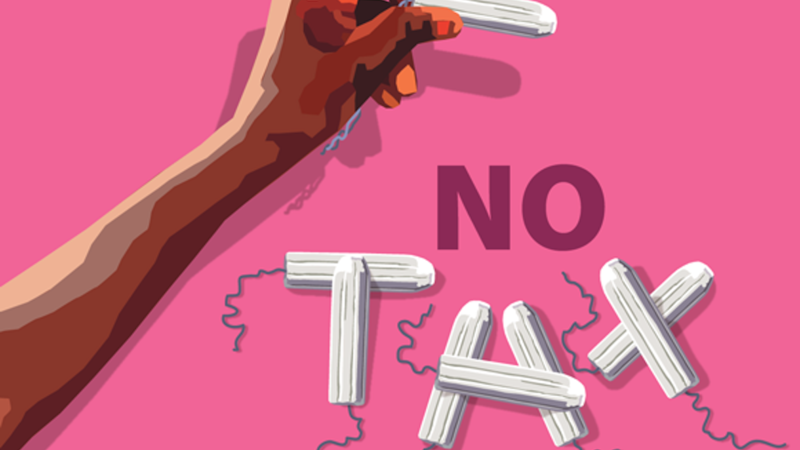What is the Tampon Tax?

A couple months ago, we talked a bit about the great strides Michigan is making by repealing the taxation of menstrual products. Today, I’d like to spend a bit more time discussing just what the Tampon Tax means for millions of people who menstruate around the world.
The Tampon Tax is the sales tax that is applied to menstrual hygiene products, deeming them nonessential “luxury” items. The average person who menstruates can spend nearly $1,773 on period products throughout their lifespan. If menstrual hygiene products were recognized as necessary items, instead of luxury items, a huge percentage of that cost would go down.
This tax exacerbates period poverty by making hygiene products far more expensive, and therefore inaccessible to many. Without adequate access to these essential period products, people who menstruate are often forced into using unsafe alternatives such as rags, towels, or toilet paper.
This issue is especially pertinent in this community as the Tampon Tax is even more significantly burdensome to women with bleeding disorders. Many of the statistics focus on the “average” number of menstrual products used per month. This number of period products could easily be double for someone with a bleeding disorder, resulting in even more of a financial burden.
Around 26 U.S. states still have the Tampon Tax, although a few states are making remarkable progress in passing bipartisan legislation that would have this tax repealed by 2023. Similar movements are taking place around the world as period activists encourage their governments to repeal their taxes on menstrual products, which can range anywhere from 5% to 20%, depending on the country. A few countries who have made their menstrual products tax-free include: Colombia, South Africa, Canada, India, Nigeria, Lebanon, and Rwanda. I’m looking forward to watching this list grow as more countries follow the incredible example set by these leaders.
It's important to understand that for the menstrual equity movement to succeed, we need to go above and beyond just the elimination of the tampon tax. In addition to eliminating the additional financial burden for menstruators, we also need to address harmful period stigmas and increase access to inclusive menstrual health education for all. But we get one step closer to ending period poverty with each state government that chooses to prioritize the voices of those who menstruate and end this unfair tax for the people in their state. So let’s keep advocating until we get the Tampon Tax eradicated in all 50 states!
To see how you can get involved in campaigns around the world, visit the Period Tax.
About The Author
You May Also Like

On April 17th join us to celebrate World Hemophilia Day and raise awareness about hemophilia and…
Share your voices, stories, artwork and videos.
